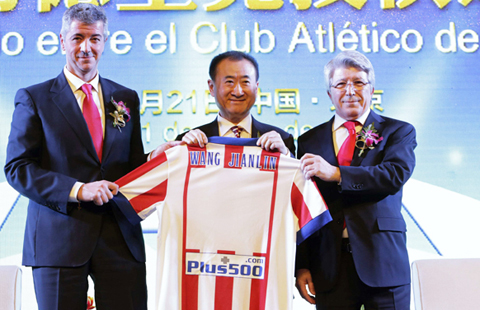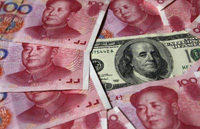Chinese hotel stays open in Liberia despite Ebola
By Li Lianxing (China Daily) Updated: 2015-02-02 07:12"It was a time when Chinese food was so popular overseas and we had the idea of eating Chinese food in a Western style to satisfy our local customers' demand," he says. "We decorated the place in a very European style and provided a sea view location. We proudly served former US president Jimmy Carter and former UK prime minister Margaret Thatcher."
The restaurant was too popular to accept reservations and people had to tip to get in, he says. The landlord, however, did not renew the lease in the 1990s.
Now his hotels generate around 100 million yuan ($16 million) in revenue every year and the occupancy rate has reached an average of 60 to 70 percent, he says. He says he wants to further boost his Golden Gate brand in the region.
"China is a brand that we are relying on. We are confident of our service and specialty. So we usually organize exhibitions and displays of Chinese brands or conferences in our hotels to further promote this bond," he says.
Hu says in Nigeria, his hotels are still at a serious disadvantage because the market is still dominated by giant international hotel chains like Hilton and Sheraton.
So to make his hotel better known and accepted by locals and international guests, he has to pay extra attention to service quality and guest experiences. The Chinese community also provides him with valuable connections.
"As more and more Chinese entrepreneurs are coming to this region for business opportunities, our hotels could be a vital hub for their entry into Africa," he says.
"We aim to develop a hotel chain in this region to further introduce Chinese business executives to local opportunities, providing organization and a thorough knowledge of local conditions."
He is the special consultant for the Nigerian government on Chinese small and medium-sized businesses, and the local community also granted him a local chieftain's status. That gives him a direct channel to identify local needs and development opportunities, he says.
"I also want to develop my hotel as a communication platform between western Africa and China," he says, adding that he has facilitated or organized many business forums and conferences that have resulted in many large projects and deals.
Hu says shouldering local social responsibility, like in his fight against Ebola, is a must for businesses.
"I know how important a brand is if one wants to develop his business in the long term, so we have to realize how important it is to localize your business. We need to establish a good image by contributing to local society and the community," he says.
"We have been donating money and goods to various schools and poverty-stricken children because we see education as the future of this country."
Hu adds that efforts must come from everyone doing business in a place. He says he thinks it is important to influence people around him, and to tell them the significance of social responsibility and localization.
"Long-term dedication is the only way to do business here in Africa," he says.
- China's younger generation losing interest in bargaining
- Foreign banks still find China market 'challenging, complicated'
- China sketches out priorities of 'Belt and Road' initiatives
- China to speed up agri modernization through reforms
- China lifts railway benchmark freight rate
- Profit of China's food sector edges up
- 76 percent of China's luxury consumption happens overseas: report
- China Mobile eyes 5G technology

















